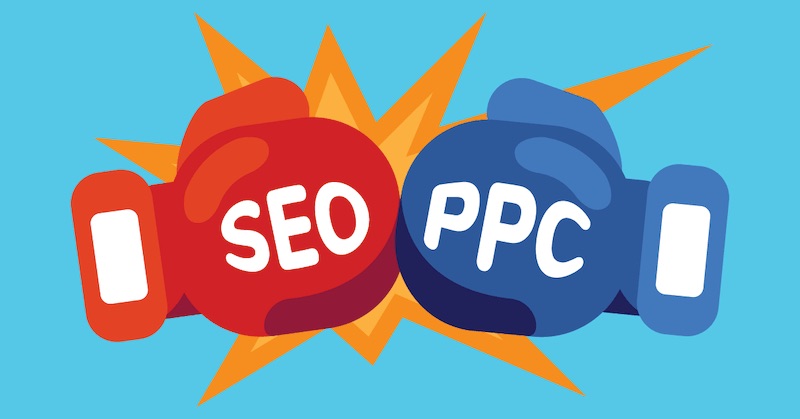In today’s digital landscape, businesses are constantly seeking effective ways to increase their online visibility and reach their target audience. Two primary methods for achieving these goals are Search Engine Optimization (SEO) and Pay-Per-Click (PPC) advertising. Each strategy offers unique advantages and considerations, making it essential for businesses to understand their differences and determine which approach best aligns with their objectives.
Understanding SEO and PPC
Before diving into the comparison, let’s take a closer look at what SEO and PPC entail.
SEO involves optimizing various elements of a website to improve its visibility in organic (unpaid) search engine results. This optimization encompasses on-page factors such as content quality, keyword usage, and meta tags, as well as off-page factors like backlinks and social signals. The goal of SEO is to increase a website’s ranking in search engine results pages (SERPs) for relevant keywords, ultimately driving organic traffic and engagement.
PPC, on the other hand, is a form of online advertising where businesses bid on keywords and pay a fee each time their ad is clicked. These ads typically appear at the top of search engine results pages (above organic results) and on various online platforms, such as social media networks and display networks. PPC campaigns offer advertisers precise control over targeting, budget, and ad creativity, making them an effective way to generate immediate visibility and traffic.
Budget Considerations
One of the primary considerations when choosing between SEO and PPC is budget allocation. Both strategies have associated costs and resource requirements that businesses need to factor into their marketing budgets.
SEO is often considered a long-term investment, as it may take time to see significant results. While the upfront costs of SEO may be lower compared to PPC, it requires ongoing efforts and resources to maintain and improve rankings. Businesses investing in SEO should budget for activities such as content creation, link building, technical optimization, and monitoring performance metrics.
On the other hand, PPC offers more immediate results but can be costlier in the long run, especially for competitive keywords and industries. Advertisers set a daily or monthly budget for their PPC campaigns and pay each time someone clicks on their ad. The cost per click (CPC) can vary widely depending on factors such as keyword competitiveness, ad quality, and targeting parameters. Businesses need to monitor their PPC campaigns closely to ensure they stay within budget and achieve their desired return on investment (ROI).
Results and ROI
Comparing the effectiveness and ROI of SEO and PPC requires analyzing various metrics and performance indicators.
SEO focuses on driving organic traffic to a website and improving its overall visibility in search engine results. While SEO results may take time to materialize, they often lead to sustainable traffic growth and higher conversion rates over time. Businesses can track the performance of their SEO efforts using metrics such as organic traffic, keyword rankings, and conversion rates.
PPC, on the other hand, offers more immediate results, with ads appearing prominently in search results and generating clicks and conversions. Advertisers can track the performance of their PPC campaigns in real time, analyzing metrics such as click-through rate (CTR), conversion rate, cost per conversion, and ROI. By optimizing their PPC campaigns based on these metrics, businesses can maximize their return on investment and achieve their marketing goals more efficiently.
Suitability
Determining which businesses benefit most from SEO vs. PPC depends on various factors, including industry, target audience, and marketing objectives.
SEO is well-suited for businesses looking to build brand awareness, establish authority, and attract organic traffic over time. Industries with long buying cycles or complex products/services may benefit from investing in SEO to nurture leads and drive conversions. Additionally, businesses with limited budgets or resources may prefer SEO for its long-term sustainability and cost-effectiveness.
PPC, on the other hand, is ideal for businesses seeking immediate results and targeting specific keywords, demographics, or geographic locations. Industries with high competition or seasonal demand may find PPC advertising more effective in generating leads and sales quickly. Additionally, businesses with flexible budgets and aggressive growth targets may prioritize PPC for its ability to drive targeted traffic and conversions on demand.
Integration
While SEO and PPC are often viewed as separate strategies, integrating both approaches can amplify results and maximize digital marketing efforts.
One approach is to use PPC to complement SEO efforts by targeting high-converting keywords or promoting seasonal offers and promotions. PPC can also help businesses test new keywords, messaging, and landing pages before incorporating them into their SEO strategy. By analyzing PPC data, businesses can identify high-performing keywords and optimize their SEO strategy accordingly.
Conversely, SEO can support PPC campaigns by improving website visibility and quality score, leading to lower CPCs and higher ad rankings. By optimizing website content, meta tags, and site speed, businesses can enhance the overall user experience and ad performance, resulting in better ROI for PPC campaigns. Additionally, integrating SEO and PPC data can provide valuable insights into user behavior, keyword trends, and market opportunities, allowing businesses to refine their digital marketing strategy and stay ahead of the competition.
In conclusion, the choice between SEO and PPC depends on various factors, including budget, timeline, industry, target audience, and marketing objectives. While SEO offers long-term benefits and sustainable growth, PPC provides immediate visibility and control over ad spend. By carefully evaluating these factors and considering the strengths and limitations of each strategy, businesses can develop a comprehensive digital marketing plan that maximizes their online visibility, drives targeted traffic, and achieves their marketing goals effectively.
Ultimately, a successful digital marketing strategy requires a balanced approach that leverages the strengths of both SEO and PPC. Whether you choose to focus on SEO, PPC, or a combination of both, the key is to continually monitor performance metrics, optimize your campaigns based on data-driven insights, and adapt your strategy to evolving market trends and consumer behavior. With the right strategy in place, businesses can increase their online visibility, attract more qualified leads, and ultimately, grow their business in the digital age.


